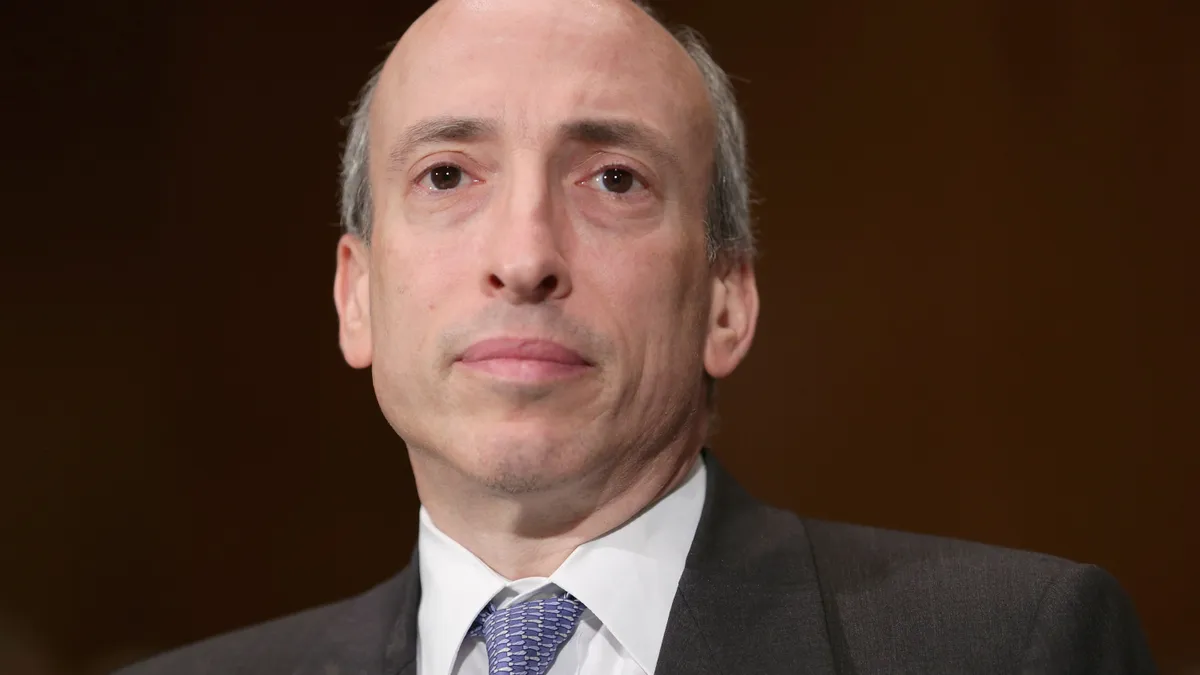Dive Brief:
- Securities and Exchange Commission (SEC) Chair Gary Gensler signaled Thursday that he would cooperate with the Commodity Futures Trading Commission (CFTC) saying that, to the extent that “it needs greater authorities with which to oversee and regulate crypto non-security tokens and related intermediaries, I look forward to working with Congress to achieve this goal,” according to a copy of his prepared remarks.
- Addressing an industry conference, Gensler also forcefully made the case for the SEC’s broad authority over crypto, saying that the “vast majority” of the nearly 10,000 tokens in the crypto market meet the definition of a security and are therefore covered under the securities laws.
- A former head of the CFTC, Gensler also outlined limits to his assistance, saying he was looking forward to working with Congress on various legislative initiatives but didn’t want to “inadvertently undermine existing securities laws underlying $100 trillion capital markets.”
Dive Insight:
Gensler’s talk comes as the SEC has been stepping up its efforts to regulate crypto and combat scams and fraud in the digital asset space.
In May the SEC announced plans to beef up its cryptocurrency unit from 30 to 50 enforcers by adding 20 supervisors, investigative staff attorneys, trial counsels and fraud analysts to the team. In April it issued guidance saying that companies should disclose the risks to investors from cryptocurrencies held on behalf of customers and account for the assets as liabilities.
CFOs and financial executives are also expecting new guidance from other regulators. Last month the Financial Accounting Standards Board (FASB) took another step toward setting new accounting standards for certain digital assets by narrowing the scope of the cryptoassets that the project will apply to, based on new criteria which leaves out nonfungible tokens (NFTs).
In his talk Gensler emphasized the need for crypto regulation. “These are not laundromat tokens: Promoters are marketing and the investing public is buying most of these tokens, touting or anticipating profits based on the efforts of others,” he said. “Therefore, investors deserve disclosure to help them sort between the investments that they think will flourish and those that they think will flounder. Investors deserve to be protected against fraud and manipulation. The law requires these protections.”












